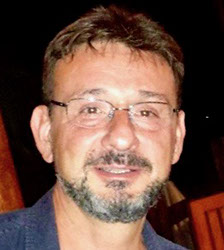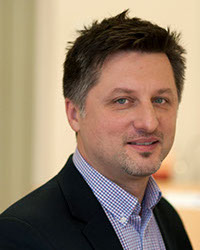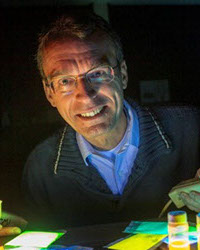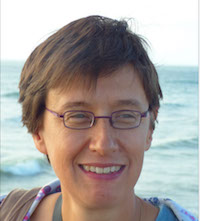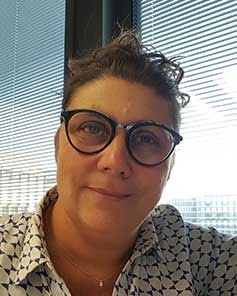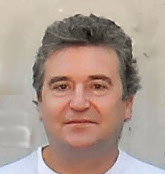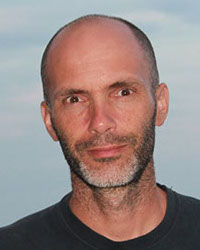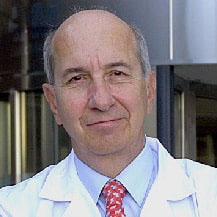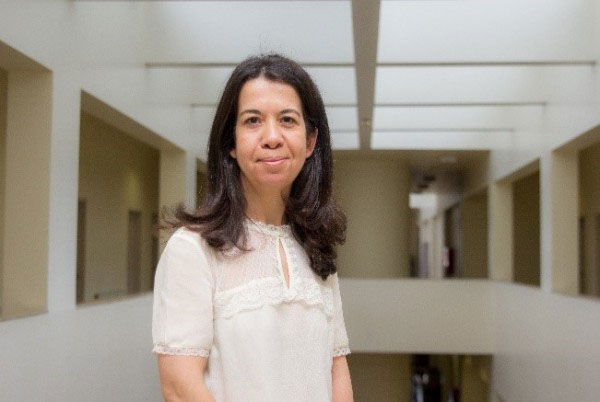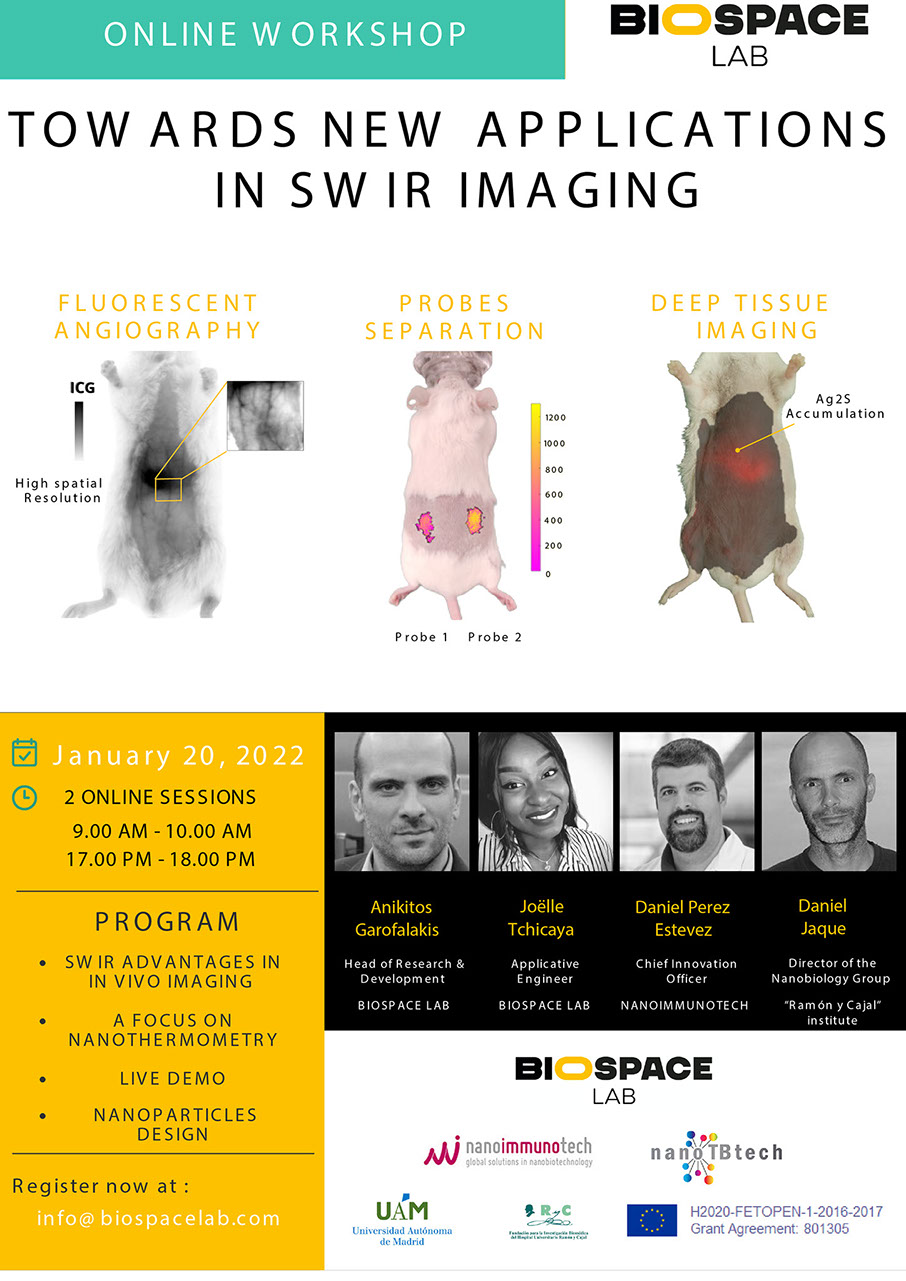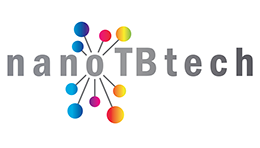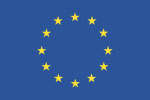
This project has received funding from the European Union's Horizon 2020 FET Open programme under grant agreement No 801305.
PROJECT
Temperature measurements are crucial in countless technological developments, accounting for 80% of the sensor market throughout the world. The pitfalls of temperature readouts at the biomedical battleground are mostly represented by the currently achievable spatial resolution. To address key issues, such as intracellular temperature fluctuations and in vivo thermal transients, a technique able to go clearly below 1 μm is highly and urgently needed, as the traditional contact-based sensors and near infrared thermometers are not suitable for measurements at that tight spatial range. To overcome these limitations requires a non-contact thermometry approach granted with sub-micrometer resolution, also providing real-time high relative thermal sensitivity values.
The goal of NanoTBTech is to develop a 2-D thermal bioimaging technology featuring sub-microscale resolution, based on nanothermometers and heater-thermometer nanostructures. We will design, synthetize, and bio-functionalize nontoxic luminescent nanostructures, operating essentially beyond 1000 nm, for in vivo nanothermometry and nanoheating.
Furthermore, to monitor the temperature-dependent nanostructures’ luminescence we will develop a novel imaging system. The effective delivery of that major advance in 2-D thermal bioimaging will be implemented through two impactful biomedical showcases: highly spatially-modulated intracellular magnetic/optical hyperthermia and in vivo detection and tracking of cancer. In the long-term, we foresee our technology having a broad impact on non-invasive clinical imaging and theranostics. For instance, the accurate measurement of temperature gradients´ sources will be an invaluable tool for real-time control of thermal therapies, thus making them harmless for the patient.
Multiple conceptual breakthroughs can be further envisaged from the proposed 2D-thermal imaging system, credibly spreading its impact towards non-biomedical technological areas.
OBJECTIVES
1. Self-monitored nanothermometers and heater-thermometer nanostructures
Design and fabrication of NIR emitting NPs and heater-thermometer nanostructures with Sr>1%K−1, resolution <0.1 K and efficiency of light-(or magnetic field) to-heat conversion>50% (figures of merit well above the currently achieved values).
2. Modelling the predesigned structures
Understanding the parameters of the nanothermometers and heater-thermometer nanostructures for objectives 3-5, e.g., brightness, Sr, heating conversion efficiency, and heat producing/diffusion mechanisms.
3. Biofunctionalization and toxicity assessment
Optimization and in vitro/in vivo incorporation of luminescent, nontoxic, long-term biodegradable, long-circulating, tumour-targeted, heating/sensing nanoplatforms linked to specific therapeutic antibodies.
4. Magneto-thermal 2D luminescent thermometry for local hyperthermia
Developing a new technology for in vitro and in vivo simultaneous luminescent 2D thermal imaging and optical microscopy imaging for localized controlled hyperthermia in cancer cells and tumour microenvironment.
5. Time-resolved in vivo thermal images in BW-II and BW-III for tumour detection and dynamical monitoring
Explore in vivo time-gated and 2D magnetic- or optical-gated thermal transient thermometry.
WORK PACKAGES
Since the materials selection criteria relay on numerous factors (size and toxicity of the NPs, its brightness and q values, the light- and magnetic field-to-heat conversion efficiency, etc.) the feedback between the WPs dealing with 2D thermal imaging applications (WP5, 6) will be provided by the materials (WP1), characterisation (WP2), modelling (WP3) and functionalization (WP4) WPs to select the best candidate materials for in vitro and in vivo studies. Moreover, the frequency and content of the intra- and inter-WPs coordination/monitoring meetings between consortium members will be varied following the “flexible response” principle throughout the development of the project (monitored by WP7 - Management).
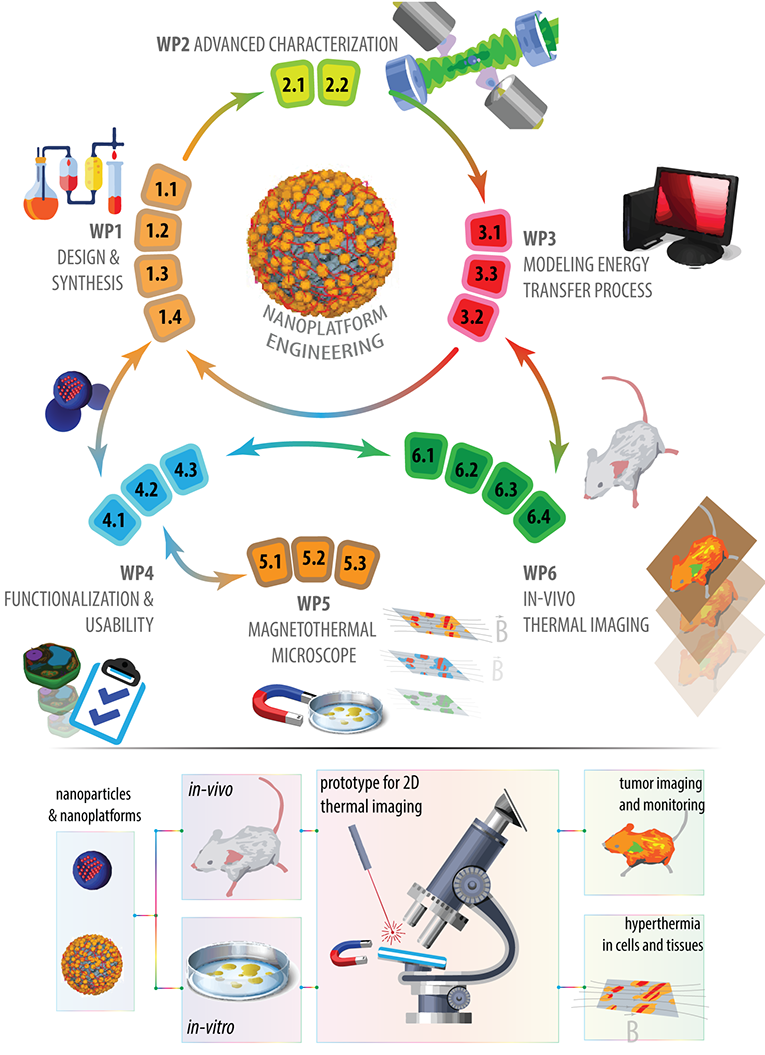
COMMITTEES
STEERING COMMITTEE
Luís D. Carlos
Miroslav Dramićanin
Artur Bednarkiewicz
Andries Meijerink
Florence Gazeau
Angel Millán
Daniel Jaque
Rute Ferreira André
(WP1)
(WP3)
(WP6)
Coordinator
(WP2)
(WP5)
(WP4)
(WP7)
EXPLOITATION COMMITTEE
UATEC (UAVR)
IRYCIS business development office
NIT
BIOSPACE
EXTERNAL ADVISORY BOARD
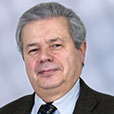 Giovanni Migliaccio
Giovanni Migliaccio
Scientific director of EATRIS, the European infrastructure for translational medicine
 John Capobianco
John Capobianco
Concordia University, Canada
 Xiaogang Liu
Xiaogang Liu
NUS, Singapore
CONSORTIUM
PARTNERS
UNIVERSIDADE DE AVEIRO (UAVR), PORTUGAL
CICECO - Aveiro Institute of Materials
Photonic Hybrids and Nanomaterials Group, Phantom-g
Luís D. Carlos
Maria Rute Sá Ferreira
Carlos D. S. Brites
Justyna Zeler
Fernando Maturi
Scientific Staff Management
Eliana Cavaleiro (project manager)
Tatiana Costa
FUNDACION PARA LA INVESTIGACION BIOMEDICA DEL HOSPITAL UNIVERSITARIO RAMON Y CAJAL (FIBIRYCIS), SPAIN
Alfredo Carrato Mena (MD)
Daniel Jaque
José Garcia Solé
António Benayas Hernandez
Nuria Fernandez
Laura García-Bermejo
Erving Ximendes
CENTRE NATIONAL DE LA RECHERCHE SCIENTIFIQUE (CNRS), FRANCE
Florence Gazeau
Amanda Silva
Nathalie Luciani
Thomas Lécuyer
Corinne Chanéac
Lise Abiven
Cyrille Richard
Johanne Seguin
Bruno Viana
AGENCIA ESTATAL CONSEJO SUPERIOR DE INVESTIGACIONES CIENTIFICAS (CSIC), SPAIN
Instituto de Ciencia de Materiales de Aragón, University of Zaragoza
Groups M4 and NAP, Department of Multifunctional Materials and Biomaterials
Angel Millán
Valeria Grazu
Rafael Piñol
INSTITUT ZA NUKLEARNE NAUKE VINCA (VINCA), SERBIA
Department of Radiation Chemistry and Physics
Optical Materials & Spectroscopy Group, Vinca Institute of Nuclear Sciences, University of Belgrade
Miroslav Dramićanin
Dragana Jovanović
Vesna Dordević
Zeljka Antić
INSTYTUT NISKICH TEMPERATUR I BADAN STRUKTURALNYCH IM. WLODZIMIERZA TRZEBIATOWSKIEGO POLSKIEJ AKADEMII NAUK (WPAS), POLAND
Artur Bednarkiewicz
Lukasz Marciniak
UNIVERSITEIT UTRECHT (UU), THE NETHERLANDS
Condensed Matter and Interfaces Group
Andries Meijerink
Markus Suta
NANOIMMUNOTECH SL (NIT), SPAIN
Christian Sánchez Espinel
Daniel Pérez Estévez
Amanda Gallego Suárez
Tamara Lozano Fernández
BIOSPACE LAB SA (BIOSPACE LAB), FRANCE
Nicolas Carvou
Lise Laumonier
Rémi Laumonier
Anikitos Garofalakis



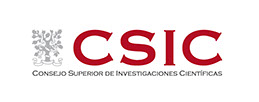
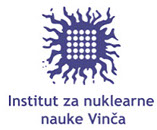
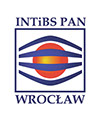
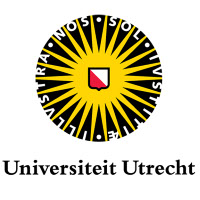


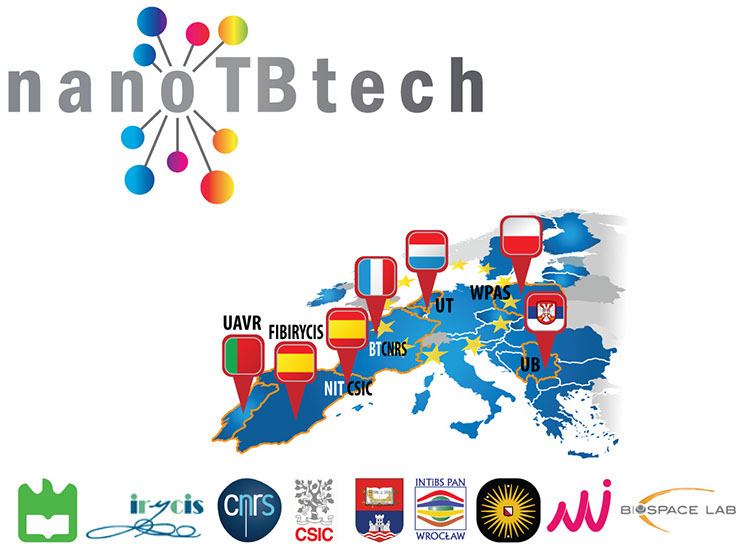
COORDINATOR
LUÍS DIAS CARLOS
Luís António Dias Carlos got his Ph.D. in physics from the University of Évora, Portugal, in 1995 working on photoluminescence of polymer electrolytes incorporating lanthanide salts. Currently, he is Full Professor in the Department of Physics at the University of Aveiro and vice-director of the CICECO-Aveiro Institute of Materials (Portugal). He is member of the Lisbon Academy of Sciences and of the Brazilian Academy of Sciences. His current research interests include luminescent nanothermometers, luminescent solar concentrators, organic-inorganic hybrids for green photonics (solid-state lighting and integrated optics), and luminescent/magnetic nanoparticles, as new probes for multimodal imaging. He has published around 420 papers and 4 international patents, which have received ca. 14850 citations (Hirsch’ index h of 61), and co-guest editor of a RSC book on Nanoscale Thermometry (Nanoscience & Nanotechnology series) and special issues of the Journal of Sol-Gel Science and Technology (2010) and of the Journal of Luminescence (2015 and 2018). He is editor of Physica B – Condensed Matter, specialty chief editor of Frontiers in Chemistry (Inorganic Chemistry), associate editor of the Journal of Luminescence and member of the editorial board of the Journal of Coordination Chemistry, Journal of Sol-Gel Science and Technology and Journal of Rare Earths.
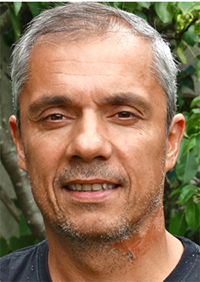
RESEARCH GROUP WEB PAGE
WORK PACKAGES LEADERS
MIROSLAV Dramićanin
WP1
Miroslav Dramićanin is research Professor at Vinča Institute of Nuclear Sciences and Full Professor at Faculty of Physics, University of Belgrade, Serbia. He obtained his PhD in Engineering Physics at University of Belgrade in 1998, working on the analysis of nonlinear effects in photoacoustic spectroscopy. Since 2006, he is the Head of Laboratory for Radiation Physics and Chemistry, Vinča Institute of Nuclear Sciences, University of Belgrade. He has published 1 book (Luminescence Thermometry: Methods, Materials, and Applications, Woodhead Publishing; ISBN: 9780081020296), 9 book chapters, and more than 230 papers in international journals which have been cited for about 5000 times (according to Google Scholar). He acts as an associate editor of the Optical Materials journal and is one chairpersons of the International Conference on the Physics of Optical Materials and Devices (ICOM) – www.icomonline.org. He is an adjunct senior scientist in the Houston Center for Biomaterials and Biomimetics at The University of Texas, Houston, USA, and Distinguished Foreign Professor of the Physics and Materials Science and Engineering Subjects at the School of Science, Chongqing University of Posts and Telecommunications (CQUPT), PR China. He is member of the Steering Committee of the Association of Italian and Serbian Scientists and Scholars - www.ais3.rs and member of the National Board for Physics of the Republic of Serbia. His participation and management experience includes coordinating of 8 Serbian national projects and 17 international (IAEA and European) projects. He has mentorship in 11 doctoral dissertations and trainings of young researchers.
Artur Bednarkiewicz
Professor Artur Bednarkiewicz received his PhD and habilitation in physics from the Institute of Low Temperature and Structure Research, Polish Academy of Sciences, in 2003 and 2013 respectively. After 4 year lasting postdoctoral research in the European Commission Joint Research Centre, Italy, he returned to ILT&SR PAS in December 2008 and simultaneously established an interdisciplinary team NAOMIS with the Wroclaw Research Centre EIT+ focusing on Nanoparticle Assisted Molecular Imaging and Sensing (NAOMIS). Together with prof.Lukasz Marciniak, they established also one another research group and lab, i.e. Luminescent nanoparticle Assisted Sensing and Imaging (LuNASI) Group, dedicated for luminescence thermometry/optical heating topic.
His current interdisciplinary research focuses on optical (bio)spectroscopy, novel designs of lanthanide doped nanoparticles and quantum dot biolabels, optical and spatial light modulation engineering, as well as on pure physics, spectroscopy and chemistry of lanthanide doped materials. Since 2015 he is an associated professor at Institute of Low Temperature and Structure Research, PAS, Poland. He is a co-author of over 90 publications (H-index =22, cited>1300, sum IF>150), he is an author of 4 patents and 3 patents applications. In the course of his research he has received numerous prizes (stipends from Ministry of Education, FNP Starting grant, Brussels Eureca). He has a broad experience as researcher (3 research grants as PI), scientific reviewer and grant evaluator, scientific supervisor of M.Sc. and PhDs students, entrepreneur. Since 2014, he is also a member of Young Academy of Science, where he is engaged in widening European participation of new EU member countries. He is also Polish representative and active participant and collaborator of COST CM1403 European Upconversion Network.
WP2
Andries Meijerink
Andries Meijerink received his MSc and PhD degree in Chemistry at Utrecht University. After a post-doc in Madison (University of Wisconsin) he returned to Utrecht in 1991. In 1996, at the age of 32, he was appointed at the chair of Solid State Chemistry in the Debye Institute of Utrecht University where he leads an active group in the field of luminescence spectroscopy of quantum dots and lanthanide ions.
In the field of lanthanide ions his work involves fundamental research on the energy level structure of both 4fn and 4fn-15d states and finding new concepts related to applications in solar cells, LEDs and scintillators. His research on quantum dots is aimed at unraveling the influence of quantum confinement and surface effects on the electronic structure and exciton dynamics of quantum dots through optical spectroscopy and using the quantum dots as labels in bio-imaging. Research on luminescence of doped nanocrystals integrates the two themes. Recent work has resulted in a better fundamental understanding of photonic effects on optical processes, insight in energy transfer processes and application of luminescent nanocrystals as temperature probes. The work has resulted in over 350 publications and 10 patents and is highly cited. For his research Andries Meijerink received several awards, including the Shell Incentive Award (1995), the Gold Medal of the Royal Dutch Chemical Society (1999) and the Centennial Award for Luminescence and Display Materials from the Electrochemical Society (2002). In 2009 he was elected into the Royal Dutch Academy of Sciences.
WP3
Florence Gazeau
WP4
Dr. Florence Gazeau, senior CNRS researcher,deputy director of MSC lab, 48 years old, obtained her Ph.D. in solid state physics in 1997, focusing on the magnetic and hydrodynamic properties of ferrofluids. She joined the CNRS as a staff scientist in 1998, when she broadened her research on biomedical applications of magnetic nanoparticles. Her current research interests focus on the physics of nanomagnetism applied to nanomedicine, cell-nanoparticles interactions, cellular MRI, nanoparticles-mediated magnetic hyperthermia and photothermia for cancer therapy, mechanobiology of cancer, magnetic targeting, nanoparticles behavior, biodegradation and long term in vivo fate and nanotoxicology applied to metallic nanoparticles and carbon nanostructures, extracellular vesicles as drug delivery system and mediators for regenerative medicine. She is participating to the NOCANTHER H2020 project applying magnetic hyperthermia as adjuvant therapy for pancreatic cancer. She was animator of the group Nanomedicine at the French observatoire of micro and nanotechnology. She is author of more than 140 publications, 5 patents, 8000+ citations with an H-index of 46.
MSC (Matière et Systèmes Complexes) is a joint laboratory from CNRS and University Paris Diderot, dedicated to physics of soft matter, turbulence, nanomaterials and living systems. The interdisciplinary Biother team (http://biother.net/) has internationally renowned expertise in nanomedicine and biophysics, particularly nanotechnology and nanomagnetism applicated to cancer therapy, drug delivery and regenerative medicine in collaboration with clinician groups. In the NanoTBTech, MSC will provide expertise in thermal therapy using nanoparticle-mediated hyperthermia under optical or magnetic remote excitation, in the follow-up of cancer microenvironment and in the molecular and physical mechanisms leading to cell death. MSC will also provide expertise in evaluating the nanoparticle/cell interactions, toxicology and long term fate of the nanoparticles in the body.
Corinne Chanéac
WP4
Corinne Chanéac is full professor at Sorbonne University (Paris, France) in Chemistry department since 2009. She received her PhD degree in Materials Chemistry on magnetic nanoparticles at University Pierre and Marie Curie in 1996. Currently, she is working in the Laboratory Chimie de la Matière Condensée de Paris (LCMCP) as senior scientist at the head of Functional nanomaterials design group. LCMCP has been a pioneer in the field of sol-gel processes. Her research focusses the synthesis of original nanomaterials, based on oxides (metallic and hybrid organic-inorganic). She develops some strategies based on her knowledge of nucleation and growth steps to controlled chemical composition, crystalline structure, morphology and size of nanoparticles. She also works on the design of nanostructures and nanocomposites evolving surface functionalization of particles. Since 2004, she strongly involved in development of persistent luminescent nanoparticles (NPs) as optical imaging nanoprobes and nanothermometers. She has published more than 120 papers (> 5000 citations, h index = 39 Google Scholar) and 6 international patents. Invested in the networking in Nanosciences and nanothechnology, she is director of the Steering Commitee of the Centre of Competences in NanoSciences, C’Nano, a national network for nanoscience emergence. This centre was created in 2007 by the CNRS to federate research in nanoscience and to lead an interdisciplinary scientific community.
ANGEL MILLÁN
WP5
Dr Angel Millan got his Ph.D. in chemistry in 1990 on the “theoretical and analytical aspects of Calcium Oxalate Urolithiasis”. His research experience comprises stays in: University of Balearic Islands (5 years), University College London (2 months), Institute of Inorganic Chemistry of Czechoslovakia (4 months), University of Nijmegen (4 years), IMP-CNRS Perpignan (1 year), and from 1996 in the ICMA-CSIC/University of Zaragoza, where he is actually a tenure researcher. His research activities have spread over a variety of fields: urolithiasis, crystal growth, photographic emulsions, solid-gas reactions, thin films, semiconductor and superconductor materials, molecular magnets, magnetic nanoparticles, etc. Actually, his main research interests are synthesis, characterization and performance of multifunctional nanoplatforms for therapy He has published 93 papers (3000 citations, h=24), 6 book chapters, 3 international patents, and 4 Spanish patents. His management experience includes coordinating 3 Spanish national projects and 8 international projects. He has also participated in 32 national and International Research Projects as co-investigator.
Daniel Jaque
Daniel Jaque (PhD in Physics, `99) is currently Associate (tenured) Professor in the Department of Material Physics at Autonomous University of Madrid (UAM, acronym in Spanish), co-director of the Fluorescence Imaging Group FIG at UAM, and Director of the Nanobiology Group at “Ramón y Cajal” Health Research Institute (IRICYS). Nowadays, his main research focus lies in multimodal in vivo imaging and sensing bioapplications of hyperspectral microscopy. He has published around 350 peer-reviewed papers in international journals (>10.900 citations, h-index=51, Google Scholar, Oct. 2018) and 2 patents. He presented over 35 plenary and invited lectures at international conferences, (over 130 communications of all kinds accepted in international forums). Prof. Jaque is a recognized pioneer and worldwide renowned authority in the field of luminescent nanothermometry, especially regarding biomedical implementation of this fast-growing research field.
He has been Associate Editor of Optics Express and he just recently ended his tenure as Associate editor of Optical Materials. He is co-author of the teaching book entitled “An introduction to the Optical Spectroscopy of Inorganic Solids” (Wiley 2005). Prof. Daniel Jaque was awarded with the European Association for the Study of Rare Earths and Actinides Young Researcher Prize in 2006. Since 2011, he is a correspondent member of the International Conference of Luminescence Committee. His management experience includes coordinating 13 national Spanish research projects and participating in 3 European projects and networks. He also acted during two years as vice-dean of the Faculty of Sciences of UAM.
WP6
ALFREDO CARRATO
Alfredo Carrato (MD and PhD in Medicine and Surgery, `75 and `82) is currently the Head of the Medical Oncology Department at Ramon y Cajal University Hospital, Scientific Director of the Ramón y Cajal Health Research Institute (IRYCIS) and Full Professor of Medical Oncology at Alcala University. He has more than 25 years of experience in the development of clinical trials and translational research and is an internationally recognized expert in the diagnosis, treatment and research of pancreatic cancer. He leads a research group (Molecular epidemiology and cancer predictive biomarkers), devoted to the following strategic lines: i) Pancreatic cancer, with special attention to the phenotypic and molecular characterization of family pancreatic adenocarcinoma and its predisposing conditions; ii) Identification of prognostic and predictive of the efficacy of anticancer treatment of solid tumours with special interest in lung cancer, colon, hepatocarcinome, breast and genitourinary factors. He actively participates in the network RTICC in Cooperative Cancer Research, in the COST Action EUPancreas (BM1204) and in Spanish Clinical Research Joint Groups (such as GECP, GEICAM, SOGUG, GEINO, GETNE, GEICO, GEM and CIBERONC). Since 1992, he is member of the executive committee of the Spanish Cooperative Group for the Treatment of Digestive Tumours (TTD). Dr. Carrato has contributed to 448+ invited lectures, 500+ publications in peer-reviewed journals (h-index=48, 11.688 citations, WOS, Oct. 2018), 287+ clinical trials, 80+ chapters in medical books, 500 abstracts at medical congresses and 40+ public research projects. He is also an active member of the European Society of Medical Oncology (ESMO), the American Society of Clinical Oncology (ASCO) and the European Association for Cancer Research (EACR).
WP6
RuTE André
Rute AS Ferreira (born 1974) got her Ph.D. in Physics from the University of Aveiro, Portugal, in 2002 and the Agregação in Physics in 2012, from University of Aveiro. Currently, she is an Associated Professor at Department of Physics (University of Aveiro), coordinates the research Line "Information and Communication technology’’ of CICECO – Aveiro Institute of materials and she is member of the Scientific Council for Exact Sciences and Engineering of the Portuguese Science Foundation (FCT).
She has published over 310 SCI papers and 5 book chapters, with ca. 8,800 citations (h-index 46). She has supervised 7 post-doctoral associates, 9 Ph.D., 18 M.Sc. and 20 undergraduate students.
Her scientific interests include are focused on the optoelectronic studies on sol-gel derived organic/inorganic hybrids without metal activator centres and doped with lanthanide ions, processed as bulk and nanostructured monoliths and thin films and to crystalline and amorphous nanoparticles of semiconductors. She has hands-on experience on the optical (photoluminescence in steady-state, time resolved modes, and quantum yield, as well as UV/Vis/NIR spectroscopy) and structural (XRD, SAXS, NMR, Raman, and Fourier-transform infrared spectroscopies) characterization of these materials. She has also expertise on the characterization of waveguiding performance of organic-inorganic hybrids and on spectroscopic ellipsometry, including optimization of modelling algorithms. Her research aims at the interpretation of the photophysical behaviour of these materials that is determined by synthesis and processing, foreseeing applications in the fields of optoelectronics and photonics (solid-state lighting, integrated optics and sensing) and photovoltaics (luminescent solar concentrators and down-shifting layers).
WP7
NEWS
NanoTBTech
in SCITECH EUROPA
March 2019
NanoTBTech was summarized in Sci-tech Europa magazine.

Open PDF
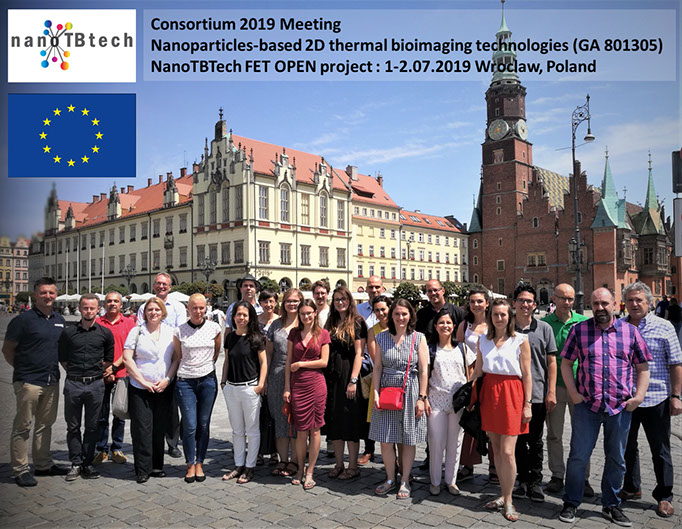
group, held during the meeting’s dinner, discussed interesting features on nanothermometry which can be relevant in future collaborations between the partners.
Consortium meetings are held once a year, next one in Serbia, in July 2020 (tentative). In the meantime, the team will keep meeting on other events ( e.g. “Three Wise Men Winter School on Luminescent Nanothermometry for Biomedical Applications”) and on the regular WP and tasks leaders meetings.
This project has received funding from the European Union's Horizon 2020 FET Open programme under grant agreement No 801305.
Artur Bednarkiewicz, Lukasz Marciniak, Luis Carlos, Vesna Dordevic, Andries Meijerink, Justyna Zeler, Rute Ferreira, Bruno Viana, Florence Gazeau, Katarzyna Prorok, Agnieszka Paściak, Thomas Lecuyer, Aleksandra Pilch, Anikitos Garofalakis, Tatiana Costa, Eliana Cavaleiro, Markus Suta, Amanda Gallego, Lise Abiven, Lise Laumonier, Erving Ximendes, Daniel Jaque, Rafael Piñol, Angel Millán.
WINTER SCHOOL
January 2020
The three Wisemen Winter school in Miraflores de la Sierra, Madrid, Spain on Luminescence Thermometry for Biomedical Applications. The school was organized on the scope of the NanoTBTech project.
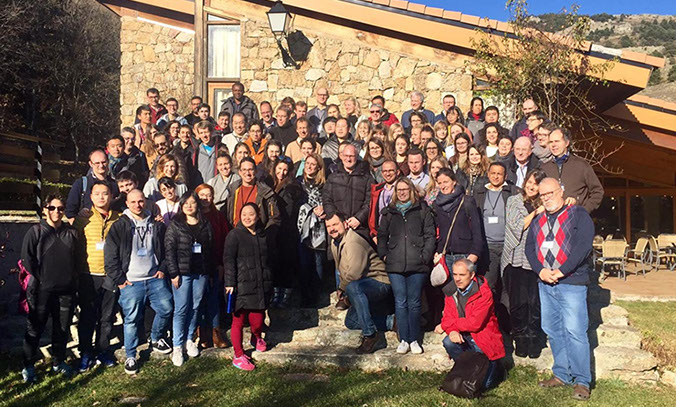
NanoTBTech
in INNOVATION
December 2020
NanoTBTech was summarized in Innovation news network.

Open PDF
3rd NanoTBTech consortium’s MEETING
November 2021
The 3rd NanoTBTech consortium’s meeting was held in Paris, France, on 17 November 2021, organized by the CNRS (Centre National de la Recherche Scientifique) partner.
The great atmosphere among partners allowed the discussion of several topics of the project, including the preparation of an industrial Workshop scheduled for January 2022, and the consortium members were very pleased with the project achievements.
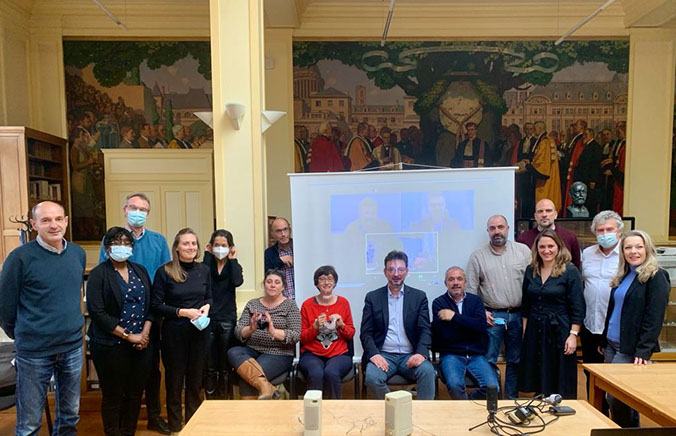
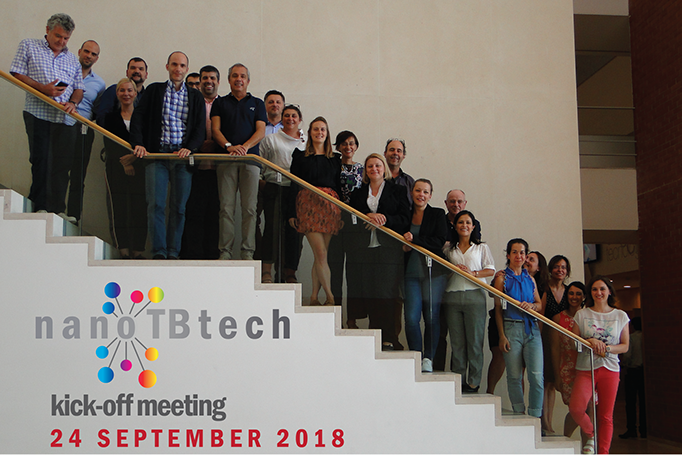
NanoTBTech
KICK-OFF MEETING
September 2018
NanoTBTech's KICK-OFF MEETING was held in University of Aveiro on September 24th, 2018.
From bottom to the top: Eliana Cavaleiro (UAVR), Tatiana Costa (UAVR), Nuria Fernandez (UAM), Laura Bermejo (IRYCIS), Rute Ferreira (UAVR), Amanda Suaréz(NIT), José Garcia Solé (UAM), Zeljka Antic (VINCA), Bruno Viana (CNRS), Vesna Djordjevic (VINCA), Florence Gazeau (CNRS), Lise Laumonier (BIOSPACE LAB), Corine Chanéac (CNRS), Artur Bednarkiewicz (WPAS), Luís Carlos (UAVR), Daniel Estévez (NIT), Carlos Brites (UAVR), Daniel Jaque (UAM), Justyna Zeler (UAVR), António Benayas (UAVR), Anikitos Garofalakis (BIOSPACE ), Angel Millan (CSIC)

NanoTBTech
WEBSITE LAUNCHED
October 2018
NanoTBTech's website was launched. Twitter and linked-in accounts are also activated.
NanoTBTech
LOGO
October 2018
NanoTBTech's logo and leaflet.
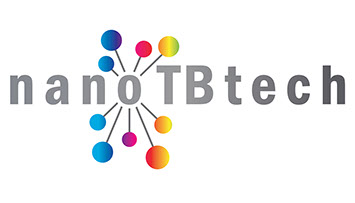

PUBLICATIONS
1. del Rosal, B.,Ruiz, D., Chaves-Coira, I., Juárez, B.H., Monge, L., Hong., Guosong, Fernández.N. & Jaque, D., In Vivo Contactless Brain Nanothermometry, 28, Advanced Functional Materials (2018)
DOI: 10.1002/adfm.201806088
![]() https://zenodo.org/record/3552591 | (get dataset)
https://zenodo.org/record/3552591 | (get dataset)
2. Carregal-Romero, S., Plaza-García, S., Piñol R., Murillo J.L., Ruiz-Cabello J., Padro D., Millán A., & Ramos-Cabrer P., MRI Study of the Influence of Surface Coating Aging on the in vivo Biodistribution of Iron Oxide Nanoparticle, 8, Biosensors, (2018)
DOI: 10.3390/bios8040127
![]() https://zenodo.org/record/2240095 | (get dataset)
https://zenodo.org/record/2240095 | (get dataset)
3. Brites, C.D.S., Balabhadra, S. & Carlos, L.D., Lanthanide‐Based Thermometers: At the Cutting‐Edge of Luminescence Thermometry, 7, Advanced Optical Materials (2019)
DOI: 10.1002/adom.201801239
![]() https://zenodo.org/record/3552658
https://zenodo.org/record/3552658
4. Martínez E.D., Brites, C.D.S., Luís D. Carlos, García‐Flores, A.F., Urbano, R. R., & Rettori C., Electrochromic Switch Devices Mixing Small‐ and Large‐Sized Upconverting Nanocrystals, 29, 1807758, Advanced Functional Materials (2019)
DOI: 10.1002/adfm.201807758![]() https://zenodo.org/record/5013844
https://zenodo.org/record/5013844
5. Sekulić, M., Ristić, Z., Milićević, B., Antić, Z., Ðorđević, V. & Dramićanin, M.D., Li1.8Na0.2TiO3:Mn4+: The highly sensitive probe for the low-temperature lifetime-based luminescence thermometry, 452, 342-346, Optics Communications (2019)
DOI: 10.1016/j.optcom.2019.07.056
![]() https://zenodo.org/record/3552659 | (get dataset)
https://zenodo.org/record/3552659 | (get dataset)
6. Bastos, A.R.N.; Brites, C.D.S.; Rojas-Gutierrez, P.A.; DeWolf, C.; Ferreira, R.A.S.; Capobianco, J.A. & Carlos, L.D., Thermal properties of lipid bilayers determined using upconversion nanothermometry, Advanced Functional Materials (2019)
DOI: 10.1002/adfm.201905474
![]() https://zenodo.org/record/3597416 | (get dataset)
https://zenodo.org/record/3597416 | (get dataset)
7. Wylezich, T., Sontakke A. D., Castaing, V., Suta, M., Viana, B., Meijerink,A. & Kunkel, N., One ion, many facets: Efficient, structurally and thermally sensitive luminescence of Eu2+ in binary and ternary strontium borohydride chlorides, 31, 8957-8968, Chemistry of Materials (2019)
DOI: 10.1021/acs.chemmater.9b03048
![]() https://zenodo.org/record/3748961| (get dataset)
https://zenodo.org/record/3748961| (get dataset)
8. Papan J., Ristić, Z., Ćirić A., Kuzman, S. & Dramićanin, M. D., Structural and Luminescent Properties of Y2Mo4O15:Eu3+ Red Phosphor Calcined at Different Temperatures, 31, 8957-8968, Chemistry of Materials (2019)
DOI: 10.1002/pssb.201900454
![]() https://zenodo.org/record/5011213 | (get dataset)
https://zenodo.org/record/5011213 | (get dataset)
9. Balfourier, A., Luciani, N., Wang, G., Lelong, G., Ersen, O., Khelfa, A., Alloyeau, D., Gazeau, F. & Carn, F., Unexpected intracellular biodegradation and recrystallization of gold nanoparticles, 117, 103-113, PNAS (2020).
DOI: 10.1073/pnas.1911734116
https://hal.archives-ouvertes.fr/hal-03409728 ![]()
10. Shen Y., Lifante J., Ximendes E., Santos H. D. A, Ruiz D., . Juárez, B. H., Gutiérrez, I. Z., Vera, V. T., Retama J. R., Rodríguez E.M., Ortgies, D.H., Jaque, D., Benayas, A. & del Rosal, B., Perspectives for Ag2S NIR-II nanoparticles in biomedicine: from imaging to multifunctionality, 11, 19251, Nanoscale, (2019)
DOI: 10.1039/c9nr05733a
![]() https://zenodo.org/record/3753207
https://zenodo.org/record/3753207
11. Marin, R., Lifante, J., Besteiro, L. V., Wang, Z., Govorov, A. O., Rivero F., Alfonso F., Sanz-Rodríguez , F. & Daniel Jaque D., Plasmonic Copper Sulfide Nanoparticles Enable Dark Contrast in Optical Coherence Tomography, 9, 1901627, Advanced Healthcare Materials, (2020)
DOI: 10.1002/adhm.201901627
![]() https://zenodo.org/record/4696799 | (get dataset)
https://zenodo.org/record/4696799 | (get dataset)
12. Ali, L. M. A., Shaker, S. A., Rafael Piñol, Millán, A., Hanafy, M. Y., Helmy, M. H., Kamel, M. A., & Mahmoud, S. A., Effect of superparamagnetic iron oxide nanoparticles on glucose homeostasis on type 2 diabetes experimental model, 245, 117361, Life Sciences (2020)
DOI: 10.1016/j.lfs.2020.117361
![]() https://zenodo.org/record/4021855 | (get dataset)
https://zenodo.org/record/4021855 | (get dataset)
13. Suta, M., Ž Antić, Ž. , Ðorđević, V., Kuzman, S., Dramićanin, M D. & Meijerink, A., Making Nd3+ a Sensitive Luminescent Thermometer for Physiological Temperatures — An Account of Pitfalls in Boltzmann Thermometry, 10, 543, Nanomaterials (2020)
DOI: 10.3390/nano10030543
![]() https://zenodo.org/record/3732254| (get dataset)
https://zenodo.org/record/3732254| (get dataset)
14. Ćirić, A., Aleksić, J., Barudžija, T., Antić, Ž., Đorđević, V., Medić, M., Periša, J., Zeković, I., Mitrić, M. & Dramićanin, M.D., Comparison of Three Ratiometric Temperature Readings from the Er3+ Upconversion Emission, 10, 627, Nanomaterials (2020). DOI: 10.3390/nano10040627
![]() https://zenodo.org/record/3899751 | (get dataset)
https://zenodo.org/record/3899751 | (get dataset)
15. Shen, Y., Lifante, J., Fernández, N., Ximendes, E. & Jaque, D., In vivo spectral distortions of infrared luminescent nanothermometers compromise their reliability, 14, 4122–4133, ACS Nano (2020)
DOI: 10.1021/acsnano.9b08824
![]() https://zenodo.org/record/3906054| (get dataset)
https://zenodo.org/record/3906054| (get dataset)
16. Balfourier, A., Mulens-Arias,V., Gazeau, F., Carn, F. , Rational Design of Fractal Gold Nanosphere Assemblies with Optimized Photothermal Conversion Using a Quantitative Structure Property Relationship (QSPR) Approach, 124, 8938–8948, Journal of Physical Chemistry C (2020)
DOI: 10.1021/acs.jpcc.0c00384
https://hal.archives-ouvertes.fr/hal-03098552 ![]()
17. Nicolás-Boluda, A., Vaquero, J., Laurent, G., Renault, G., Bazzi, R., Donnadieu, E., Roux, S., Fouassier, L. & Gazeau F., Photothermal Depletion of Cancer-Associated Fibroblasts Normalizes Tumor Stiffness in Desmoplastic Cholangiocarcinoma, 14, 5738–5753, ACS Nano (2020)
DOI: 10.1021/acsnano.0c00417
![]() https://hal.archives-ouvertes.fr/hal-02746158
https://hal.archives-ouvertes.fr/hal-02746158
18. Antić, Ž., Prashanthi, K., Kuzman, S., Periša, J., Ristić, Z., Palkarc, V. R. & Dramićanin, M. D., Ratiometric temperature measurement using negative thermal quenching of intrinsic BiFeO3 semiconductor nanoparticles, 10, 16982, RSC Advances (2020)
DOI: 10.1039/D0RA01896A
![]() https://zenodo.org/record/3900972 | (get dataset)
https://zenodo.org/record/3900972 | (get dataset)
19. Handel, B., Dinkova, V. V., Ximendes, E., Solé, J. G., Jaque, D. & Marin, R., Investigation of the concentration- and temperature-dependent motion of colloidal nanoparticles, 12, 12561-12567, Nanoscale (2020)
DOI: 10.1039/d0nr02995e
![]() https://zenodo.org/record/4001573 | (get dataset)
https://zenodo.org/record/4001573 | (get dataset)
20. Kaczmarek, A. M., Suta, M., Rijckaert, H., Abalymov, A., Van Driessche I., Skirtach, A. G., Meijerink, A. & Van Der Voort, P., Visible and NIR Upconverting Er3+-Yb3+ Luminescent Nanorattles and Other Hybrid PMO-Inorganic Structures for In Vivo Nanothermometry, 30, Advanced Functional Materials (2020)
DOI: 10.1002/adfm.202003101
![]() https://zenodo.org/record/3909019 | (get dataset)
https://zenodo.org/record/3909019 | (get dataset)
21. Santos, H. D. A., I Gutiérrez, I. Z., Shen,Y., Lifante, J., Ximendes, E., Laurenti, M., Méndez-González, D., Melle, S., Calderón, O. G., Cabarcos, E. L., Fernández, N., Chaves-Coira, I., Lucena-Agell,D., Monge, L., Mackenzie, M. D., Marqués-Hueso, J., Jones, C. M. S., Jacinto C., del Rosal, B., Kar, A. K., Rubio-Retama, J. & Jaque D., Ultrafast photochemistry procudes ultra-brigth dots for low dose in vivo imaging, 11, 2933, Nature Communications (2020)
DOI: 10.1038/s41467-020-16333-2
![]() https://zenodo.org/record/3906552 | (get dataset)
https://zenodo.org/record/3906552 | (get dataset)
22. Mateos, S., Lifante, J., Li, C., Ximendes E. C., Muñoz‐Ortiz, T., Yao, J., de la Fuente‐Fernández, M., Villalón, A. L. G., Granado, M., Gutierrez, I. Z., Rubio‐Retama, J., Jaque, D., Ortgies, D. H. & Fernández, N., Instantaneous In Vivo Imaging of Acute Myocardial Infarct by NIR‐II Luminescent Nanodots, 16, Small (2020)
DOI: 10.1002/smll.201907171
![]() https://zenodo.org/record/3906824 | (get dataset)
https://zenodo.org/record/3906824 | (get dataset)
23. Pilch-Wróbel, A., Zasada, J. & Bednarkiewicz, A., The influence of Ce3+ codoping and excitation scheme on spectroscopic properties of NaYF4:Yb3+,Ho3+, 226, 117494, Journal of Luminescence (2020)
DOI: 10.1016/j.jlumin.2020.117494 ![]() https://zenodo.org/record/4415335 | (get dataset)
https://zenodo.org/record/4415335 | (get dataset)
24. Bednarkiewicz, A., Marciniak, L., Carlos, L. D. & Jaque, D., Standardizing luminescence nanothermometry for biomedical applications, 27, Nanoscale (2020)
DOI: 10.1039/D0NR03568H
![]() https://zenodo.org/record/4415488 | (get dataset)
https://zenodo.org/record/4415488 | (get dataset)
25. Kuzman, S., Periša J., Ðordevic, V., Zekovic, I.,Vukoje, I., Antic, Z., & Draminicanin M.D., Surface Plasmon Enhancement of Eu3+ Emission Intensity in LaPO4/Ag Nanoparticles, 13, 3071, Materials, (2020)
DOI: 10.3390/ma13143071
![]() https://zenodo.org/record/4809157 | (get dataset)
https://zenodo.org/record/4809157 | (get dataset)
26. Salerno E. V., Zeler, J., Eliseeva S. V., Hernández-Rodriguéz, M. A., Neto, A. N. C., Petoud, S., Pecoraro, V. L. & Carlos, L. D., [Ga3+8Sm3+2, Ga3+8Tb3+2] Metallacrowns are Highly Promising Ratiometric Luminescent Molecular Nanothermometers Operating at Physiologically Relevant Temperatures, 26, 13792-13796, Chemical-A European Journal, (2020)
DOI: 10.1002/chem.202003239
![]() https://zenodo.org/record/5680169 | (get dataset)
https://zenodo.org/record/5680169 | (get dataset)
27. Brites, C. D. S., Zhuang, B., Debasu, M. L. , Ding, D., Qin, X., Maturi, F. E. , Lim, W. W. Y., Soh, D.W., Rocha, J., Yi, Z., Liu, X., & Carlos, L. D., Decoding a Percolation Phase Transition of Water at ∼330 K with a Nanoparticle Ruler, 16, 6704–6711, The Journal of Physical Chemistry Letters, (2020)
DOI: 10.1021/acs.jpclett.0c02147
![]() https://zenodo.org/record/5701318 | (get dataset)
https://zenodo.org/record/5701318 | (get dataset)
28. Lifante J., del Rosal, B., Jaque, D. & Ximendes, E., The near-infrared autofluorescence fingerprint of the brain, e202000154, Journal of Biophotonics, (2020)
DOI: 10.1002/chem.202003239
![]() https://zenodo.org/record/4020646 | (get dataset)
https://zenodo.org/record/4020646 | (get dataset)
29. Piñol, R., Zeler, J., Brites, C. D. S., Gu, Y., Téllez, P., Neto, A. N. C., da Silva, T.E., Moreno-Loshuertos, R., Fernandez-Silva, P., Gallego, A. I., Martinez-Lostao, L., Martínez, A., Carlos, L. D. & Millan A., Real-Time Intracellular Temperature Imaging Using Lanthanide-Bearing Polymeric Micelles, 20, 6466–6472, Nano Lett. (2020)
DOI: 10.1021/acs.nanolett.0c02163
![]() https://zenodo.org/record/4031613 | (get dataset)
https://zenodo.org/record/4031613 | (get dataset)
30. Gu, Y., Yoshikiyo, M., Namai, A., Bonvin, D., Martinez, A., Piñol, R., Téllez, P.,Nuno J. O. Silva, N. J. O., Ahrentorp, F., Johansson C., Marco-Brualla, J., Moreno-Loshuertos, R., Fernández-Silva, P., Cui, Y., Ohkoshi, S. & Millan, A., Magnetic hyperthermia with ε-Fe2O3 nanoparticles, 10, 28786, RSC Advances (2020)
DOI: 10.1039/d0ra04361c
![]() https://zenodo.org/record/4021060| (get dataset)
https://zenodo.org/record/4021060| (get dataset)
31. Kaczmarek A. M., Suta, M., Rijckaert, H., Abalymov, A., Driessche, I. V., Skirtach A. G., Meijerink, A. & Van Der Voort, P., Visible and NIR Upconverting Er3+–Yb3+ Luminescent Nanorattles and Other Hybrid PMO-Inorganic Structures for In Vivo Nanothermometry, 30, 2003101, Advanced Functional Materials (2020)
DOI: 10.1002/adfm.202003101
![]() https://zenodo.org/record/4001573| (get dataset)
https://zenodo.org/record/4001573| (get dataset)
32. Balfourier A., Kolosnjaj-Tabi, J., Luciani, N., Carn, F. & Gazeau, F., Gold-based therapy: From past to present, 117, 22639-22648, PNAS (2020)
DOI: 10.1073/pnas.2007285117
![]() https://zenodo.org/record/ | (get dataset)
https://zenodo.org/record/ | (get dataset)
33. Shen, Y., Santos, H. D. A., Ximendes, E. C., Sanz-Portilla, A., Monge, L., Fernández, N., Jacinto, C., Brites, C. D. S., Carlos, L.D., Benayas A., Iglesias-de la Cruz, M. C., & Jaque, D., Ag2S nanoheaters with multiparameter sensing for reliable thermal feedback during in vivo tumor therapy, Advanced Functional Materials, 2002730 (2020)
DOI: 10.1002/adfm.202002730
![]() https://zenodo.org/record/4024280 | (get dataset)
https://zenodo.org/record/4024280 | (get dataset)
34. Zhou, J., del Rosal, B., Jaque, D., Uchiyama, S. & Jin, D., Advances and challenges for fluorescence nanothermometry, 17, 967–980, Nature Methods, (2020)
DOI: 10.1038/s41592-020-0957-y
![]() https://zenodo.org/record/4630946
https://zenodo.org/record/4630946
35. Mulens-Arias, V., Balfourier, A., Nicolás-Boluda, A., Carn, F. & Gazeau, F., Endocytosis-driven gold nanoparticle fractal rearrangement in cells and its influence on photothermal conversion, 12, 21832–21849, Nanoscale, (2020)
DOI: 10.1039/D0NR05886F
![]() https://zenodo.org/record | (get dataset)
https://zenodo.org/record | (get dataset)
36. Lifante, J., Shen, Y., Ximendes, E., Rodríguez, E. M., & Ortgies, D.H., The role of tissue fluorescence in in vivo optical bioimaging, 128, 171101, Journal of Applied Physics (2020)
DOI: 10.1063/5.0021854
![]() https://zenodo.org/record/5793672
https://zenodo.org/record/5793672
37. van Swieten, T. P., Yu, D., Yu, T., Vonk, S. J. W., Suta M., Zhang, Q., Meijerink, A., & Rabouw, F. T., A Ho3+-Based Luminescent Thermometer for Sensitive Sensing over a Wide Temperature Range, 9, 2001518, Advanced Optical Materials (2021)
DOI: 10.1002/adom.202001518
![]() https://zenodo.org/record/4574557 | (get dataset)
https://zenodo.org/record/4574557 | (get dataset)
38. Kniec, K., Piotrowski W., Ledwa, K., Carlos, L. D., & Marciniak L., Spectral and thermometric properties altering through crystal field strength modification and host material composition in luminescence thermometers based on Fe3+ doped AB2O4 type nanocrystals (A = Mg, Ca; B = Al, Ga), 9, 517, Journal of Materials Chemistry C, (2021)
DOI: 10.1039/d0tc04917d
![]() https://zenodo.org/record/6201303 | (get dataset)
https://zenodo.org/record/6201303 | (get dataset)
39. Bastos, A. R. N., Brites, C. D. S., Rojas-Gutierrez, P. A., Ferreira, R. A. S., Longo, R. L., DeWolf, C., Capobianco, J. A. & Carlos, L. D., Thermal properties of lipid bilayers derived from the transient heating regime of upconverting nanoparticles, 12, 24169, Nanoscale, (2020)
DOI: 10.1039/d0nr06989b
![]() https://zenodo.org/record/6200212| (get dataset)
https://zenodo.org/record/6200212| (get dataset)
40. Suta, M. & Meijerink, A., A Theoretical Framework for Ratiometric Single Ion Luminescent Thermometers - Thermodynamic and Kinetic Guidelines for Optimized Performance, 3, 2000176, Advanced Theory and Simulations, (2020)
DOI: 10.1002/adts.202000176
![]() https://zenodo.org/record/4313837
https://zenodo.org/record/4313837
41. Marin R. & Jaque, D., Doping Lanthanide Ions in Colloidal Semiconductor Nanocrystals for Brighter Photoluminescence, 121, 1425–1462, Chemical Reviews, (2021)
DOI: 10.1021/acs.chemrev.0c00692
![]() https://zenodo.org/record/4631189
https://zenodo.org/record/4631189
42. Marin, R., Benayas, A., & Jaque D., Switching to the brighter lane: pathways to boost the absorption of lanthanide-doped nanoparticles, 6, 209-230, Nanoscale Horizons, (2021)
DOI: 10.1039/D0NH00627K
![]() https://zenodo.org/record/4631061
https://zenodo.org/record/4631061
43. Ximendes, E., Benayas, A., Jaque, D. & Marin, R., Quo Vadis, Nanoparticle-enabled in vivo fluorescence imaging? 15, 1917–1941, ACS Nano, (2021)
DOI: 10.1021/acsnano.0c08349
![]() https://zenodo.org/record/4630855
https://zenodo.org/record/4630855
44. Maciejewska, K., Bednarkiewicz, A., Meijerink, A. & Marciniak, L., Correlation between the Covalency and the Thermometric Properties of Yb3+/Er3+ Codoped Nanocrystalline Orthophosphates, 125, 2659−2665, Journal of Physical Chemistry C (2021)
DOI: 10.1021/acs.jpcc.0c09532
![]() https://zenodo.org/record/6351497 | (get dataset)
https://zenodo.org/record/6351497 | (get dataset)
45. Gu, Y., Silva, N. J. O., Yoshikiyo, M., Namai, A., Piñol, R., Maurin-Pasturel, G., Cui, Y., Ohkoshi, S., Millán, A. & Martínez, A., Efficient Brownian oscillators and nanoheaters based on gallium-doped ɛ-Fe2O3, 57, 22852288, Chemical Communications, (2021)
DOI: 10.1039/D0CC07309A
![]() https://zenodo.org/record/5007823 | (get dataset)
https://zenodo.org/record/5007823 | (get dataset)
46. Kaczmarek, A. M., Suta, M., Rijckaert, H., van Swieten, T. P., Driessche, I. V., Kaczmarekd, M. K. & Meijerink, A., High temperature (nano)thermometers based on LiLuF4:Er3+,Yb3+ nano- and microcrystals. Confounded results for core–shell nanocrystals, 9, 3589, Journal of Materials Chemistry C, (2021)
DOI: 10.1039/d0tc05865c
![]() https://zenodo.org/record/4891836 | (get dataset)
https://zenodo.org/record/4891836 | (get dataset)
47. Muñoz‐Ortiz, T., Hu, J., Ortgies, D. H., Shrikhande, S., Zamora‐Perez, P., Granado, M., González‐Hedström, D., Fuente‐Fernández, M., García‐Villalón, A. L., Andrés‐Delgado, L., Rodríguez, E. M., Aguilar, R., Alfonso, F., Solé, J. G., Gil, P. R, Jaque, D. & Rivero, F., Molecular Imaging of Infarcted Heart by Biofunctionalized Gold Nanoshells, 2002186, Advanced Healthcare Materials, (2021)
DOI: 10.1002/adhm.202002186
![]() https://zenodo.org/record/4630855 | (get dataset)
https://zenodo.org/record/4630855 | (get dataset)
48. Lifante, J., Shen, Y., Gutierrez, I. Z., Rubia‐Rodríguez, I., Ortega, D., Fernandez, N., Melle, S., Granado, M., Rubio‐Retama, J., Jaque, D., & Ximendes, E., Reaching Deeper: Absolute In Vivo Thermal Reading of Liver by Combining Superbright Ag2S Nanothermometers and In Silico Simulations, 2003838, Advanced Science, (2021)
DOI: 10.1002/advs.202003838
![]() https://zenodo.org/record/4773422 | (get dataset)
https://zenodo.org/record/4773422 | (get dataset)
49. Bednarkiewicz, A., Drabik, J., Trejgis, K., Jaque D., Ximendes E. & Marciniak L., Luminescence based temperature bio-imaging: the status, challenges and perspectives, 8, 011317, Applied Physics Reviews, (2021)
DOI: 10.1063/5.0030295
![]() https://zenodo.org/record/6351597
https://zenodo.org/record/6351597
50. Kniec, K., Piotrowski, W., Ledwa, K., Suta, M., Carlos L. D. & Marciniak L., From quencher to potent activator – Multimodal luminescence thermometry with Fe3+ in the oxides MAl4O7 (M = Ca, Sr, Ba), 30, 2003101, Journal of Materials Chemistry C, (2021)
DOI: 10.1039/d1tc01272j
![]() https://zenodo.org/record/5031931 | (get dataset)
https://zenodo.org/record/5031931 | (get dataset)
51. Elzbieciak-Piecka, K., Suta, M. & Marciniak L., Structurally induced tuning of the relative sensitivity of LaScO3:Cr3+ luminescent thermometers by co-doping lanthanide ions, 421, 129757, Chemical Engineering Journal (2021)
DOI: 10.1016/j.cej.2021.129757
![]() https://zenodo.org/record/4922387 | (get dataset)
https://zenodo.org/record/4922387 | (get dataset)
52. Perišaa, J., Ristića, Z., Piotrowski, W., Antić, Z., Marciniak, L. &. Dramićanin, M. D., All near-infrared multiparametric luminescence thermometry using Er3+, Yb3+-doped YAG nanoparticles, 11, 15933-15942, RSC Advances (2021)
DOI: 10.1039/D1RA01647D
![]() https://zenodo.org/record/4817931 | (get dataset)
https://zenodo.org/record/4817931 | (get dataset)
53. Maciejewska, K., Bednarkiewicz, A. & L. Marciniak, L. , NIR Luminescence lifetime nanothermometry based on phonon assisted Yb3+-Nd3+ energy transfer, 3, 4918-4925, Nanoscale Advances (2021)
DOI: 10.1039/D1NA00285F
![]() https://zenodo.org/record/5045156 | (get dataset)
https://zenodo.org/record/5045156 | (get dataset)
54. Moura Jr., R. T., Neto, A. N. C., Aguiar, E. C., Santos-Jr., C. V., de Lima, E. M., Faustino W. M., Teotonio, E. E. S., Brito H. F., Felinto, M. C. F. C, Ferreira, R. A. S., Carlos L. D., Longo R. L. & Malta, O. L., (INVITED) JOYSpectra: A web platform for luminescence of lanthanides, 11, Optical Materials X (2021)
DOI: 10.1016/j.omx.2021.100080
![]() https://zenodo.org/record/6201849 | (get dataset)
https://zenodo.org/record/6201849 | (get dataset)
55. Maturi, F. E., Brites, C. D. S., Ximendes, E. C., Mills, C., Olsen, B., Jaque D., Ribeiro, S. J. L. & Luís D. Carlos, L. D., Going Above and Beyond: A Tenfold Gain in the Performance of Luminescence Thermometers Joining Multiparametric Sensing and Multiple Regression, 2100301, Laser Photonics Reviews (2021)
DOI: 10.1002/lpor.202100301
![]() https://zenodo.org/record/5930575 | (get dataset)
https://zenodo.org/record/5930575 | (get dataset)
56. Martínez, E. D., García-Flores, A. F., Neto, A. N. C., Brites, C. D. S., Carlos, L. D., Urbano, R. R., & Rettori, C., Controlling the Thermal Switching in Upconverting Nanoparticles Through Surface Chemistry, Nanoscale (2021)
DOI: 10.1039/D1NR03223B
![]() https://zenodo.org/record/6200638 | (get dataset)
https://zenodo.org/record/6200638 | (get dataset)
57. Fang, M., Neto, A. N. C., Fu, L., Ferreira, R. A. S., de Zea Bermudez, V. & Carlos, L. D., A Hybrid Materials Approach for Fabricating Efficient WLEDs Based on Di-Ureasils Doped with Carbon Dots and a Europium Complex, Advanced Materials Technologies (2021)
DOI: 10.1002/admt.202100727
![]() https://zenodo.org/record/6202100 | (get dataset)
https://zenodo.org/record/6202100 | (get dataset)
58. Bolek P., Zeler, J., Brites, C. D. S., Trojan-Piegza, J., Carlos, L. D. & Zych, E., Ga-modified YAG:Pr3+ dual-mode tunable luminescence thermometers, 421, 129764, Chemical Engineering Journal, (2021)
DOI: 10.1016/j.cej.2021.129764
![]() https://zenodo.org/record/6202310 | (get dataset)
https://zenodo.org/record/6202310 | (get dataset)
59. Shi, R., Martinez, E.D., Brites, C.D.S.& Carlos, L.D. Thermal enhancement of upconversion emission in nanocrystals: A comprehensive summary, 23, 20-42, Physical Chemistry Chemical Physics (2021) DOI:10.1039/d0cp05069e
![]() https://zenodo.org/record/6199409 | (get dataset)
https://zenodo.org/record/6199409 | (get dataset)
60. Millán, À., Lanzer, P. & Sorribas, V., The Thermodynamics of Medial Vascular Calcification 9, 633465, Frontiers in Cell and Development Biology (2021) DOI:10.3389/fcell.2021.633465
![]() https://zenodo.org/record/5789011 | (get dataset)
https://zenodo.org/record/5789011 | (get dataset)
61. Glais, E., Maître, A., Viana, B. & Chanéac, C.Experimental measurement of local high temperature at the surface of gold nanorods using doped ZnGa2O4as a nanothermometer 3, 2862-2869, Nanoscale Advances (2021) DOI: 10.1039/D1NA00010A
![]() https://hal.archives-ouvertes.fr/hal-03222535
https://hal.archives-ouvertes.fr/hal-03222535
62. Ximendes, E., Marin, R., Shen, Y., Ruiz, D., Gómez-Cerezo, D., Rodríguez-Sevilla, P., Lifante, J.,Viveros-Méndez, P.X., Gámez, F., García-Soriano, D., Salas, G., Zalbidea, C., Espinosa, A., Benayas, A., García-Carrillo, N., Cussó, L., Desco, M., Teran, F.J., Juárez, B.H. & Jaque, D. Infrared-Emitting Multimodal Nanostructures for Controlled In Vivo Magnetic Hyperthermia, 33, 2100077, Advanced Materials (2021) DOI: 10.1002/adma.202100077
![]() https://zenodo.org/record/5034409| (get dataset)
https://zenodo.org/record/5034409| (get dataset)
63. Vera, V.T., Mendez-Gonzalez, D., Ramos-Ramos, D.J., Igalla, A., Laurenti, M.,Contreras-Caceres, R., Lopez-Cabarcos, E., Díaz, E., Rubio-Retama, J., Melle, S. & G. Calderón, O. The effects of dopant concentration and excitation intensity on the upconversion and downconversion emission processes of β-NaYF4:Yb3+,Er3+ nanoparticles 9, 8902-8911, Journal of Materials Chemistry C, (2021) DOI:10.1039/D1TC01419F
![]() https://zenodo.org/record/5810201 | (get dataset)
https://zenodo.org/record/5810201 | (get dataset)
64. Maciejewska, K., Bednarkiewicz, A. & Marciniak, L.The influence of the Er3+ dopant concentration in LaPO4:Nd3+, Er3+ on thermometric properties of ratiometric and kinetic-based luminescent thermometers operating in NIR II and NIR III optical windows 620, 413247, Physica B: Condensed Matter, (2021) DOI: 10.1016/j.physb.2021.413247
![]() https://zenodo.org/record/6338051| (get dataset)
https://zenodo.org/record/6338051| (get dataset)
65. Bolek, P., Zeler, J., Carlos, L.D. & Zych, E., Mixing phosphors to improve the temperature measuring quality, 122, 111719, Optical Materials (2021) DOI: 10.1016/j.optmat.2021.111719
![]() https://zenodo.org/record/6202468 | (get dataset)
https://zenodo.org/record/6202468 | (get dataset)
66. Yao, J., Lifante, J., Rodríguez-Sevilla, P., de la Fuente-Fernández, M., Sanz-Rodríguez, F., Ortgies,D.H., Calderon, O.G., Melle, S., Ximendes, E., Jaque, D. & Marin, R. In Vivo Near-Infrared Imaging Using Ternary Selenide Semiconductor Nanoparticles with an Uncommon Crystal Structure, 17, 2103505, Small (2021) DOI: 10.1002/smll.202103505
![]() https://zenodo.org/record/5793282 | (get dataset)
https://zenodo.org/record/5793282 | (get dataset)
67. Mulens-Arias, V., Nicolás-Boluda, A., Pinto, A., Balfourier, A., Carn, F., Silva, A.K.A., Pocard, M. & Gazeau, F.Tumor-selective immune-active mild hyperthermia associated with chemotherapy in colon peritoneal metastasis by photoactivation of fluorouracil-gold nanoparticle complexes,15, 3330-3348, ACS Nano (2021) DOI: 10.1021/acsnano.0c10276
![]() https://zenodo.org/record/ | (get dataset)
https://zenodo.org/record/ | (get dataset)
68. Nicolas-Boluda, A., Yang, Z., Guilbert, T., Fouassier, L., Carn, F., Gazeau, F. & Pileni, M.P., Self-Assemblies of Fe3O4 Nanocrystals: Toward Nanoscale Precision of Photothermal Effects in the Tumor Microenvironment, 31, 2006824, Advanced Functional Materials (2021) DOI: 10.1002/adfm.202006824
![]() https://hal.archives-ouvertes.fr/hal-03003265
https://hal.archives-ouvertes.fr/hal-03003265
69. Pasciak, A.,Pilch-Wróbel, A., Marciniak, L., Schuck, J. P., & Bednarkiewicz, A. Standardization of Methodology of Light-to-Heat Conversion Efficiency Determination for Colloidal Nanoheaters 13, 44556-44567, ACS Applied Materials and Interfaces (2021) DOI: 10.1021/acsami.1c12409
![]() https://zenodo.org/record/6346674 | (get dataset)
https://zenodo.org/record/6346674 | (get dataset)
70. Mendez-Gonzalez, D., Vera, V. T., Gutierrez, I. Z., Gerke, C., Concepción, C., Rubio-Retama, J., Calderón, O.G., Melle, S. & Laurenti, M. Upconverting Nanoparticles in Aqueous Media: Not a Dead-End Road. Avoiding Degradation by Using Hydrophobic Polymer Shells 2105652, Small (2021) DOI:10.1002/smll.202105652
![]() https://zenodo.org/record/5793193 | (get dataset)
https://zenodo.org/record/5793193 | (get dataset)
71. Marin, R., Benayas, A., García-Carillo, N., Lifante, J., Yao, J., Mendez-Gonzalez, D., Sanz-Rodríguez, F., Rubio-Retama, J., Besteiro, L.V. & Jaque, D. Nanoprobes for Biomedical Imaging with Tunable Near-Infrared Optical Properties Obtained via Green Synthesis 3, 2100260, Advanced Photonics Research (2022) DOI:10.1002/adpr.202100260
![]() https://zenodo.org/record/5796031 | (get dataset)
https://zenodo.org/record/5796031 | (get dataset)
72. Skripka, A., Mendez-Gonzalez, D., Marin, R., Ximendes, E., del Rosal, B., Jaque D., & Rodríguez-Sevilla, P. Near infrared bioimaging and biosensing with semiconductor and rare-earth nanoparticles: recent developments in multifunctional nanomaterials 3, 6310, Nanoscale Advances (2021) DOI:10.1039/D1NA00502B
![]() https://zenodo.org/record/5805980
https://zenodo.org/record/5805980
73. Shen, Y., Lifante, J., Gutierrez, I.Z., Fuente-Fernández, M., Granado, M., Fernández N., Rubio-Retama J., Jaque D., Marin R., Ximendes E., & Benayas A. Reliable and Remote Monitoring of Absolute Temperature During Liver Inflammation via Luminescence Lifetime-Based Nanothermometry, 2107764, Advanced Materials (2022) DOI: 10.1002/adma.202107764
![]() https://zenodo.org/record/6353497 | (get dataset)
https://zenodo.org/record/6353497 | (get dataset)
74. Yu, D., Li, H., Zhang, D., Zhang, Q., Meijerink, A. & Suta, M. One ion to catch them all: Targeted high-precision Boltzmann thermometry over a wide temperature range with Gd3+. 10, 236, Light: Science and Applications (2021) DOI: 10.1038/s41377-021-00677-5
![]() https://zenodo.org/record/5751280 | (get dataset)
https://zenodo.org/record/5751280 | (get dataset)
75. Zamora-Perez, P., Xiao, C., Sanles-Sobrido,M., Rovira-Esteva, M., Conesa, J.J., Mulens-Arias, V., Jaque, D., & Rivera-Gil, P. Multiphoton imaging of melanoma 3D models with plasmonic nanocapsules, Acta Biomaterialia (2022) DOI: 10.1016/j.actbio.2022.01.052
![]() https://zenodo.org/record/6352930 | (get dataset)
https://zenodo.org/record/6352930 | (get dataset)
76. Gutierrez, I.Z., Gerke C., Shen, Y., Ximendes, E., Silvan, M.M., Marin, R., Jaque, D., Calderón, O.G., Melle, S. & Rubio-Retama, J., Boosting the Near-Infrared Emission of Ag2S Nanoparticles by a Controllable Surface Treatment for Bioimaging Applications 14, 4871 - 4881, ACS Applied Materials and Interfaces (2022) DOI:10.1021/acsami.1c19344
![]() https://zenodo.org/record/6311823 | (get dataset)
https://zenodo.org/record/6311823 | (get dataset)
77. López-Peña, G., Hamraoui, K., Horchani-Naifer, K., Gerke, C., Ortgies, D.H., Rodríguez, E.M., Chen, G., Jaque, D., & Rubio, J.R. Lanthanide doped nanoheaters with reliable and absolute temperature feedback 631, 413652, Physica B: Condensed Matter (2022) DOI: 10.1016/j.physb.2021.413652
![]() https://zenodo.org/record/6312249 | (get dataset)
https://zenodo.org/record/6312249 | (get dataset)
78. Martínez, E.D., Brites, C.D.S,. Urbano, R.R., Rettori, C., Carlos, L.D. Hyperspectral imaging thermometry assisted by upconverting nanoparticles: Experimental artifacts and accuracy, 629, 111719, Physica B (2022) DOI: 10.1016/j.physb.2021.413639
![]() https://zenodo.org/record/6375855 | (get dataset)
https://zenodo.org/record/6375855 | (get dataset)
79. Carneiro, A. N., Mamontova, E., Botas, A. M. P., Brites, C. D. S., Ferreira, R. A. S., Rouquette, J., Guari, Y., Larionova, J., Long, J., Carlos, L. D., Rationalizing the Thermal Response of Dual-Center Molecular Thermometers: The Example of an Eu/Tb Coordination Complex, 10, 2101870, Advanced Optical Materials (2022) DOI: 10.1002/adom.202101870
![]() https://zenodo.org/record/6375841 | (get dataset)
https://zenodo.org/record/6375841 | (get dataset)
80. Silva, R.N., Botas, A.M.P., Brandão, D., Bastos, V., Oliveira, H., Debasu, M.L., Ferreira,R.A.S., Brites, C.D.S., Carlos, L.D., 3D sub-cellular localization of upconverting nanoparticles through hyperspectral microscopy, 626, 413470, Physica B (2022) DOI: 10.1016/j.physb.2021.413470
![]() https://zenodo.org/record/6375813 | (get dataset)
https://zenodo.org/record/6375813 | (get dataset)
81. Nicolas-Boluda, A., Laurent, G., Bazzi R., Roux, S., Donnadieu, E. & Gazeau F., Two step promotion of a hot tumor immune environment by gold decorated iron oxide nanoflowers and light-triggered mild hyperthermia, 13, 18483-18497, Nanoscale (2021) DOI: 10.1039/D1NR03201A
![]() https://zenodo.org/record/6210696 | (get dataset)
https://zenodo.org/record/6210696 | (get dataset)
82. Maciejewska, K., Szalkowski, M., Bednarkiewicz,A. & Marciniak, L. From structural phase transition to highly sensitive lifetime based luminescent thermometer: multifaceted modification of thermometric performance in Y0.9-xNdxYb0.1PO4 nanocrystals 9, 15831–15839, Journal of Materials Chemistry C (2021) DOI:10.1039/D1TC04107J
![]() https://zenodo.org/record/6342831 | (get dataset)
https://zenodo.org/record/6342831 | (get dataset)
83. Cantarano, A., Yao, J., Matulionyte, M., Lifante, J., Benayas, A., Ortgies, D.H., Vetrone, F., Ibanez, A., Gérardin, C., Jaque, D. & Dantelle, G. Autofluorescence-Free in Vivo Imaging Using Polymer-Stabilized Nd3+-Doped YAG Nanocrystals 12, 51273-51284, ACS Applied Materials and Interfaces (2020) DOI:10.1021/acsami.0c15514
![]() https://zenodo.org/record/4419892 | (get dataset)
https://zenodo.org/record/4419892 | (get dataset)
84. Tan, M., Li, F., Cao, N., Li, H., Wang, X., Zhang, C., Jaque, D. & Chen, G. Accurate In Vivo Nanothermometry through NIR-II Lanthanide Luminescence Lifetime 16, 2004118, Small (2020) DOI:10.1002/smll.202004118
![]() https://zenodo.org/record/5805844 | (get dataset)
https://zenodo.org/record/5805844 | (get dataset)
85. Ortega-Rodríguez, A., Shen, Y., Zabala Gutierrez, I., Santos, H.D.A., Torres Vera, V., Ximendes, E., Villaverde, G., Lifante, J., Gerke, C., Fernández, N., Calderón, O.G., Melle, S., Marques-Hueso, J., Mendez-Gonzalez, D., Laurenti, M., Jones, C.M.S., López-Romero, J.M., Contreras-Cáceres, R., Jaque, D., Rubio-Retama, J. 10-Fold Quantum Yield Improvement of Ag2S Nanoparticles by Fine Compositional Tuning, 12, 12500-12509, ACS Applied Materials and Interfaces (2020) DOI: 10.1021/acsami.9b22827
![]() https://zenodo.org/record/3906495 | (get dataset)
https://zenodo.org/record/3906495 | (get dataset)
PATENTS
Nanoparticulas de Ag2S super fluorescentes en la región del infrarrojo cercano y metódo de obtención. Spanish patent No. 2773946 (FIBIRYCIS) granted on on 08-03-2021. View Online
Measurement system and a method for determining the light-to-heat conversion in the VIS to NIR range in colloidal nanomaterials. Patent application No. P.437330 (WPAS), filed in the Polish Patent Office in the matter 47580/20, March 17, 2021. View Patent | View Demonstration Video
Multiplexed Luminescent QR Codes for Smart Labelling, for Measuring Physical Parameters and Real-Time Traceability and Authentication, Portuguese patent No. 115622 B (UAVR) granted on 26/10/2021. USA PCT request No. PCT/IB2020/056223, 01/07/2020.View Online
PUBLIC DELIVERABLES
1.1 First generation of nanoparticles (download)
1.2 Power-to-colloidal nanoparticles protocol (download)
1.3 Final round of nanohaters and nanoplatforms (download)
2.1 Core-shell nanoparticles (download)
3.1 Basic model of energy transfer in nanocrystals (download)
4.1 Report on the NPs functionalization (download)
5.1 Instruction manuals first edition (download)
5.2 Cell Temperature gradient report (download)
6.1 First calibration datasheets for in vivo imaging (download)
6.4 First report of in vivo detection of tumours (download)
7.1 WebSite + Logo (download)
7.3 DMP (download)
7.4 Leaflet (download)
7.5 Dissemination and Exploitation (download)
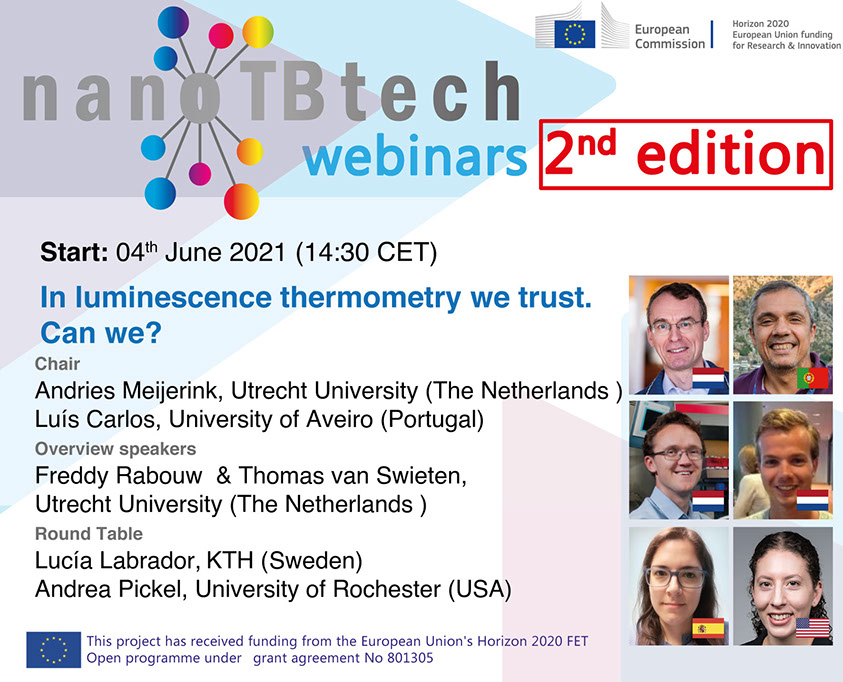
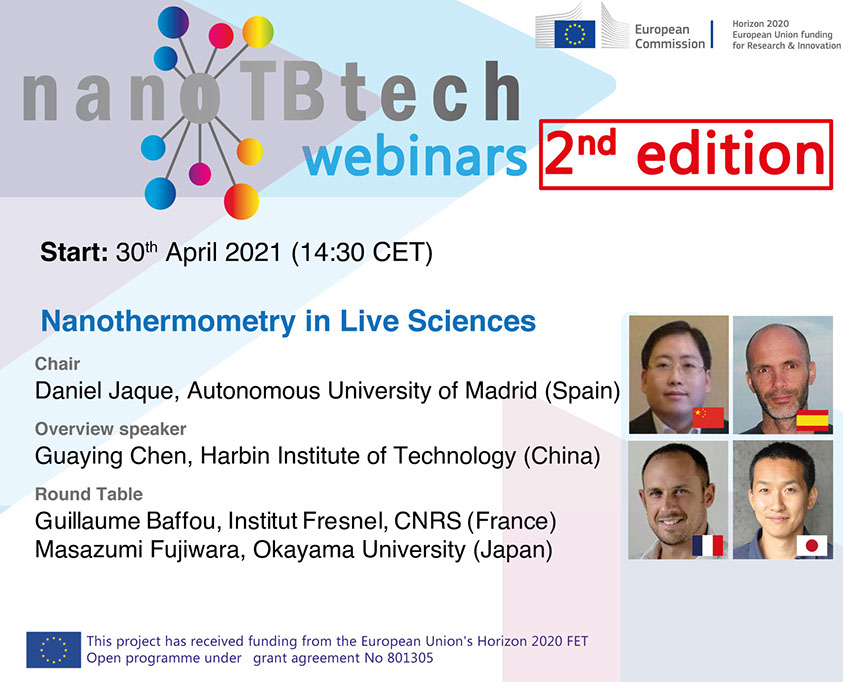
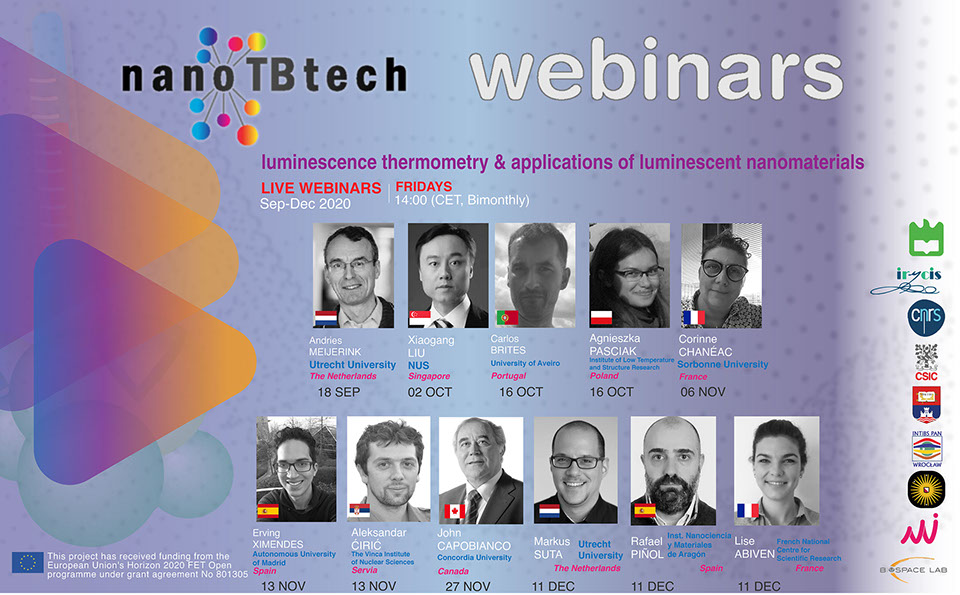
1st edition
18 Sep 2020: Andries MEIJERINK (Utrecht University, The Netherlands)
Luminescence Nanothermometry with Lanthanides: Principles, Applications and Challenges.
02 Oct 2020: Xiaogang LIU (National University of Singapore, Singapore)
High-Performance Spectral-Conversion Luminescence Nanoprobes: What’s Ahead?
16 Oct 2020: Agnieszka PASCIAK (Inst. Low Temperature and Structure Research, Poland)
Standardization of light-to-heat conversion efficiency of colloidal nanoheaters.
16 Oct 2020: Carlos BRITES (University of Aveiro, Portugal)
Water: Decoding the percolation phase transition at 330 K with a nanoparticle ruler.
06 Nov 2020: Corinne Chanéac (Sorbonne Université, Paris, France)
Nanoparticles synthesis: basic aspects, nucleation-growth strategy, applications to the elaboration of luminescent nanoparticles.
13 Nov 2020: Erving XiMENDES (Autonomous University, Madrid, Spain)
Aiming at reliable luminescence thermal sensing: basic strategies to overcome the problem of light attenuation in tissues.
13 Nov 2020: Aleksandar ĆIRIĆ (The Vinca Institute of Nuclear Sciences, Serbia)
Luminescence Intensity Ratio Thermometry with trivalent lanthanides: modelling and simulation using Judd-Ofelt theory
27 Nov 2020: John CAPOBIANCO (Concordia University, Canada)
Upconverting Nanoparticles in Nanobiomedicine.
11 Dec 2020: Markus Suta (Utrecht University, The Netherlands)
The theoretical guidelines for optimized thermometry – An interplay between thermodynamics and kinetics for targeted design
11 Dec 2020: Rafael PIÑOL (Instituto de Nanociencia y Materiales de Aragón, Spain)
Design and Synthesis of Micellar Thermometric Systems based on Amphiphilic Block Copolymers-Lanthanide Complexes Conjugates
11 Dec 2020: Lise ABIVEN (French National Center for Scientific Research, France)
Ag2S nanoparticles-based thermal sensing: from photoluminescence signal to reliable temperature readings
Meetings
KICKOFF
Meeting
Aveiro 24-Sep-2019
The 2019's NanoTBTech kickoff meeting Aveiro, Portugal, on 24 September.
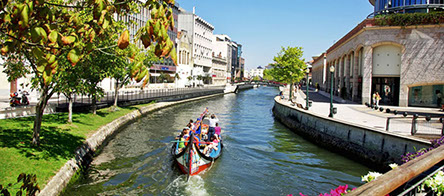
Consortium’s
2019 Meeting
Wroclaw 1&2-Jul-2019
The 2019's NanoTBTech annual meeting in Wroclaw, Poland, on 1-2 July.
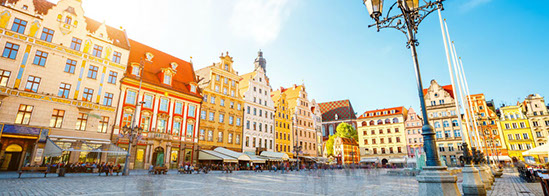
REVIEW MEETING
Brussels, Belgium, 28-Oct-2019
First review meeting in Brussels, on 28-Oct-2019.

Eliana Cavaleiro, PhD
Project Manager
Physics Department
University of Aveiro
Campus Universitário de Santiago
3810-193 Aveiro | Portugal
WINTER SCHOOL
Miraflores de la Sierra , Spain, 08-11-Jan-2020
Three Wise Men Winter School on Luminescent Nanothermometry for Biomedical Applications.
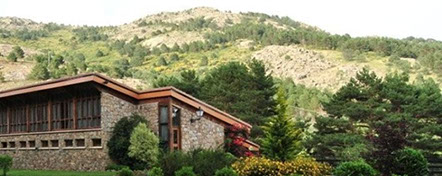

VISIT WEBSITE
Consortium's 2020 Meeting
Online, 02 & 03-Jul-2020
The 2020 consortium's meeting, on-line, on 02-Jul-2020.
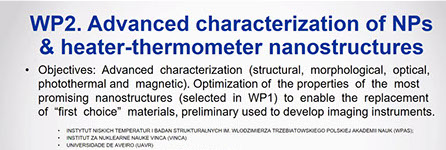
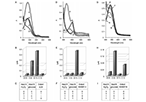
Consortium's 2021 Meeting
Paris, France, Hybrid Meeting, 17 -Nov-2021
The last NanoTBTech consortium's annual meeting, in Paris 17-Nov-2021.

INDUSTRIAL WORKSHOP
CONTACT
Prof. Luís Dias Carlos
Project Coordinator
Physics Department
University of Aveiro
Campus Universitário de Santiago
3810-193 Aveiro | Portugal
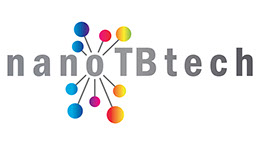
MADE BY PHANTOM-G, AVEIRO, PORTUGAL





